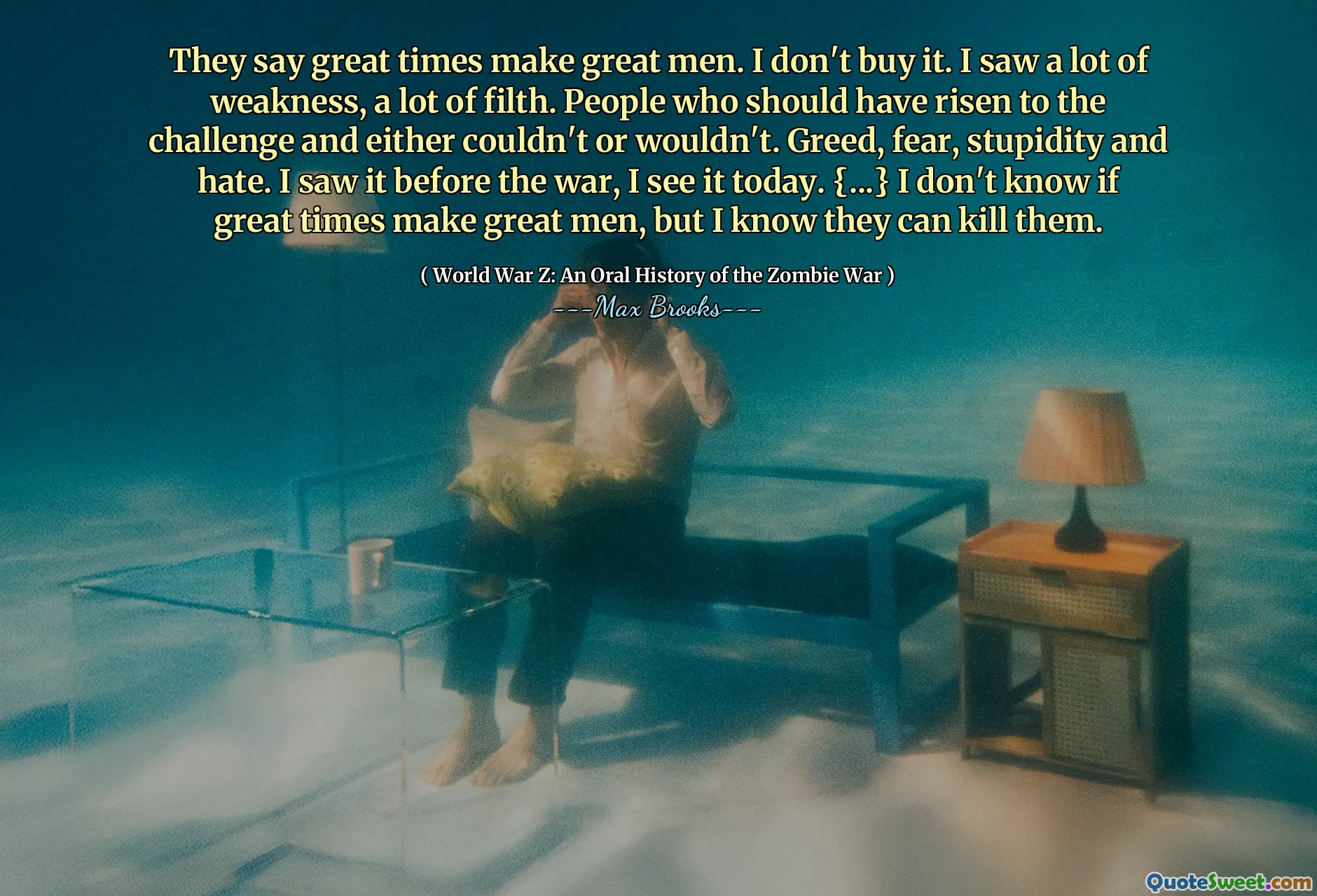
They say great times make great men. I don't buy it. I saw a lot of weakness, a lot of filth. People who should have risen to the challenge and either couldn't or wouldn't. Greed, fear, stupidity and hate. I saw it before the war, I see it today. {...} I don't know if great times make great men, but I know they can kill them.
In Max Brooks' "World War Z: An Oral History of the Zombie War," the narrative challenges the idea that prosperous times inherently lead to the emergence of remarkable individuals. The author reflects on the reality of society, revealing instances of weakness and moral decay amidst alleged prosperity. Instead of greatness, he observed greed, fear, and hatred, suggesting that these negative traits overshadow the potential for heroism and strength.
The quote emphasizes a critical perspective: while great times may provide opportunities for greatness, they can also contribute to the decline of character. Brooks implies that during moments of crisis, people's true nature is revealed, and not everyone rises to the occasion. He suggests that rather than fostering greatness, favorable conditions can lead to complacency or worse, ultimately harming those we expect to shine in challenging times.











